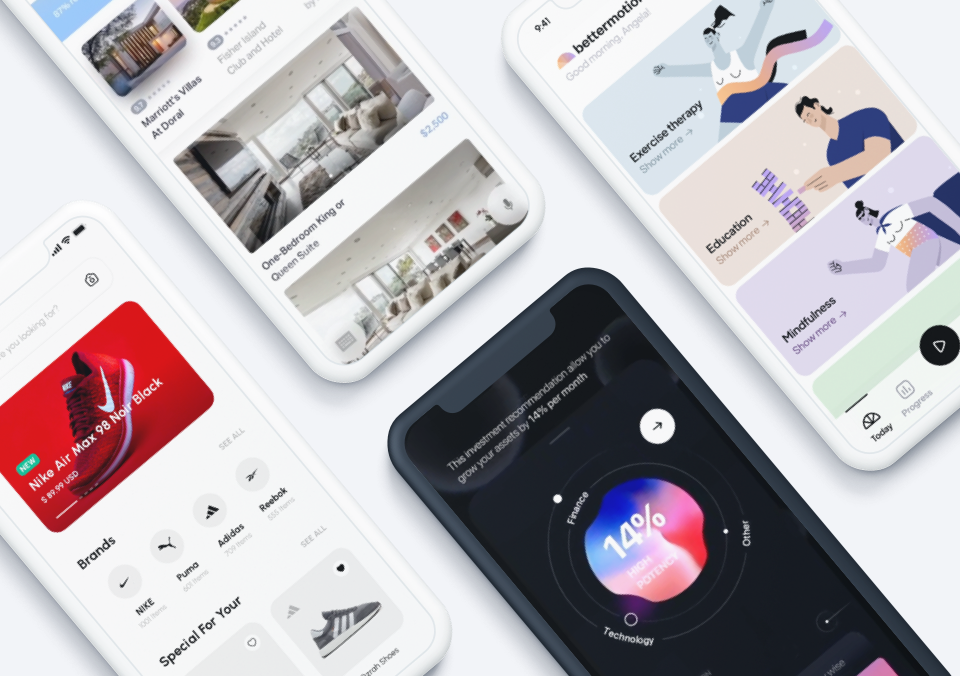Corporate social responsibility (CSR) has become an important part of the business. At the very minimum, most businesses have some sort of CSR policy that involves giving back to their community — they might raise money for a charity during the holidays or collect canned goods for food drives.
But other companies are going above and beyond the obligatory holiday donation. The app Charity Miles (which we’ve discussed before) pairs users with corporate sponsors, who donate money to user-chosen charities for every mile walked, run, or biked. Warby Parker donates one pair of glasses to those in need for every pair purchased.
Bombas was literally founded on the principle that they would donate socks to the homeless (socks are the most requested item in homeless shelters). For every item of clothing purchased from their website, they donate an item to homeless shelters and have donated over 27 million articles of clothing thus far.
The Changing Role of Social Responsibility in Business
Charity Miles, Warby Parker, and Bombas (among many others) are setting an excellent example of what can happen when you make CSR an integral part of your business, and it’s catching on. One manager from a major corporation recently spoke to students about the impact of marketing on society. He explained to them that they don’t just have a corporate social responsibility policy — CSR is their entire strategy.

The reason for this shift could be a number of factors, but we’re willing to bet that at least one of them is changing generational priorities. More than any generation before them, millennials and Generation Z are choosing to vote with their wallets — meaning that they are more likely to spend their money on products made by companies they feel they can support entirely.
According to a 2017 study on CEO activism conducted by Weber Shandwick, millennials are more likely to buy from companies where the CEO has spoken out about hotly debated issues. In fact, that number increased from 2016 to 2017 (46% to 51%). By contrast, only 33% of Gen Xers and 30% of baby boomers replied that they would be more likely to buy from companies with outspoken CEOs. (This study did not include generation Z.)
The study also found that nearly half of millennials (47%) “believe CEOs have a responsibility to speak up about issues that are important to society.” In contrast, only 28% of each prior generation felt the same way. Furthermore, 56% of millennials believed CEOs had more responsibility to speak out than in the past.
This is not to say that gen Xers and baby boomers don’t care about social responsibility or charitable giving — they absolutely do. But speaking in broad terms, they don’t place as much emphasis on corporate social responsibility as millennials or gen Z.
If nothing else, the Weber Shandwick study may be an indication of the emphasis millennials place on the CEO’s responsibility for setting the tone for the entire company. If social responsibility is important to the CEO, it will trickle down to the management team, and then to the employees. This mentality can have a profound effect on your whole workforce.
And of course, millennials and gen Z folks spend a lot of time on their mobile devices. Some of them don’t even have laptops anymore — they use tablets or smartphones for everything they do. There’s no reason to believe their search for socially responsible companies wouldn’t include their mobile apps.
We won’t all be working on the same scale as some of the large players in the mobile app space, but we can do better in our own mobile app design companies and projects. Here’s how to create a socially responsible mobile app.
How to Make Your Mobile App Design Business More Socially Responsible
Make Social Responsibility a Cornerstone
Lilia Stoyanov, CEO of Transformify, says that it’s unfortunate, but “to many businesses, social responsibility means occasional campaigns or donations. It is better than doing nothing at all, but it is definitely not enough to achieve sustainable results.” Stoyanov believes that in order to make a real, lasting difference in the world, you must weave social responsibility into the fabric of your business.
Transformify is an HR software and freelance platform that connects job seekers with recruiters all over the world. Still, Stoyanov says it “started as a freelance platform providing remote jobs and secure payments.”

However, it didn’t take long for a very specific group of people to catch onto the potential benefits of remote work. “Soon, moms contacted us, asking if there are flexible work opportunities for them so they could accommodate their parental duties and pick up their children from school, etc. Since then, we specifically ask our business clients if they can provide jobs for moms or people in need as there is a growing demand.”
Their other major focus is on high unemployment areas, perhaps in areas where the industry has cut back on jobs, or travel is difficult. Stoyanov believes this isn’t just something good their company can do — it’s a responsibility.
“Providing jobs to people living in high unemployment areas is much needed to revitalize the local communities. In both cases, I believe that people need to be provided with equal access to jobs and secure payment regardless of their location or personal situation. It is the entire society that benefits of such arrangements, and it is our responsibility as business leaders.”
Stoyanov says that social responsibility is bigger than the holiday donation drives. “Social responsibility is the willingness to give back to society and create opportunities for people in need. It is not necessarily related to initiatives or donations. Instead, it is an integral part of Transformify’s mission and what we stand for. Our business model is built around diversity and financial inclusion.”
If creating a socially responsible mobile app is important to you, using Stoyanov and the work she’s doing with Transformify as a benchmark couldn’t be a better idea. They’re not talking the talk — they’re walking in the walk in a way that transforms lives (pun intended), and it’s not something Stoyanov takes lightly.
She’s been able to video chat with some of the people Transformify has helped, which has really brought this responsibility home for her. “Being connected on a personal level, listening to the stories of people I would otherwise never meet, completely changed my perception about doing business and giving back to society. Now, it’s more important than ever to do my best to transform people’s lives for good as I see the results in their eyes.”
Focus on Environmental Sustainability
Millennials and Gen Z are incredibly focused on climate change — perhaps the most famous advocate being Sweden’s Greta Thunberg. (Check out her TED talk here.) If you want to create a socially responsible app (and attract the brightest, most loyal talent in the meantime), keeping sustainability at your business’ core principles is a great strategy to adopt.
Let Your Employees Work Remotely
Allowing your employees to work remotely isn’t always possible full-time — sometimes, you need people to be physically in a room together or working hands-on in order to get things done. The good news is that with mobile app design and development, it should be possible at least part of the time. There are plenty of benefits to remote work, but for now, we’ll focus on the sustainable ones.

One of the most obvious ways that remote work is sustainable is in people driving less. With employees driving into the office less often, there will be fewer cars on the road, less gas used, and less wear and tear on vehicles, resulting in fewer oil changes, fewer tire changes, and longer life of the vehicle.
Another way this can promote sustainability is by utilizing a smaller amount of office space, which should allow you to reduce the amount of gas and electricity you use (and maybe even rent, in the long-term).
Buy Your Employees Bus Passes
If you need your employees to come into the office — whether it’s every day or some days — buying them a bus pass (or subsidizing part of the cost) can also be a way to promote sustainability. Again, this keeps the number of cars on the road down and reduces gas emissions.
Of course, this assumes that public transportation in your location is even remotely convenient. If you’re in a large city, this shouldn’t be a problem.
Use Alternative Energy Sources
If you own your office building (or you’re running your mobile app design firm from home), consider the possibility of investing in alternative energy sources. If you live in a sunny area, you may benefit from installing solar panels on the roof.
You can begin by looking into what your options are in your specific state. Some providers offer green energy plans, which are sourced from alternative sources — typically wind or solar. In many cases, there isn’t much of a price difference between traditional coal or gas-powered plan than a green energy plan.
Even if you’re renting office space, you may be able to choose a green energy plan on your own, or lobby among the other business owners in the building to hop on a plan together.
Buy Offsets for Employee Travel
One strategy gaining popularity as of late is purchasing something called “carbon offsets” to help… well, offset your carbon footprint (which can be calculated here). The money spent on offsets can be used to support efforts that focus on creating more renewable resources, planting trees, or capturing methane.
One of the largest sources of individual carbon emissions is airplane travel, so if you’re committed to reducing your mobile app design firm’s carbon footprint, look into purchasing offsets for your employee’s flights. This could be for client meetings, conferences, conventions, or any other reason you’re traveling for work.
And of course, if you can avoid airline travel, you should. There are plenty of video-conferencing services that can fit whatever your business’ needs are (including screen sharing), such as Skype, GotoMeeting, and Zoom. You can even record on some platforms so you can review the calls later or send them to team members who couldn’t attend.
Reduce, Reuse, Recycle
Do your best to reduce the amount of material waste and single-use items in your office. Don’t print things unless you have to (and when you do, recycle it). If you keep disposable utensils around for your employees, find more environmentally sustainable options, like wood or bamboo (plastic utensils take 100 years to start decomposing in a landfill). Better yet, just keep cheap metal utensils around the office and ask people to wash, dry, and put them away after they use them.

When computers die, take them to a company that recycles them. If you’re not sure where to start, do some Googling — some scrap metal businesses will take computers, and Best Buy will even take some electronics and small appliances.
Remember that the word order of this common saying is important: First, reduce the number of single-use items you use. If possible, reuse the item. And if you can’t reuse it any longer, recycle it.
Donate Corporate Time
Gathering your employees together for days of service is a great way to be socially responsible — especially if you’re doing it more than once per year. Choose a social cause that is important to your founders and/or employees. This could be homelessness, domestic violence, gun violence, children in need, or any other issue near and dear to your hearts.
Then, organize a monthly day of service and allow any employee who wants to participate (and has the time) to do so. You could volunteer together at a food pantry, take socks to homeless shelters, plant trees with your local parks department, or attend a local government hearing about your particular issue.
Whatever you decide to do, make it a priority for your business, and encourage your employees to participate.
Participate in Giving Tuesday
Giving Tuesday is a movement that started as a reaction to all the holiday shopping madness surrounding Black Friday and Cyber Monday. It’s a day dedicated to giving back to the community, promoting local and global charities, and celebrating the good they do for those in need.
There are plenty of ways you can get involved, such as financial and physical goods donations, volunteer work, signing petitions or fundraising online, or lending your expertise pro bono. Nonprofits are often short on cash and human capital, so helping out in this manner can be extremely beneficial.
This is a great opportunity to form a strategic partnership with an organization that’s important to you. For mobile app designers, this might mean designing mobile apps for a charity, troubleshooting any app development issues, or simply helping them figure out what an app could look like for them. Perhaps it’s helping them build a prototype and then letting them hire their choice of the developer to finish the job.
Put the User’s Needs First
An important (and easy) way to be socially responsible is to give users what they truly need — not what you want them to have. Developing a successful mobile app isn’t about artificially increasing time spent in the app, creating a way for your users to waste their precious time, or buying another power up to beat that tricky level. A significant factor in social responsibility is helping people get what they actually need from your service.

If your app is designed to help people keep their schedules straight, that should be your number one priority. If your app is designed to help people stay in touch with their friends, don’t sell their data to the highest bidder and allow ads that deliberately spread misinformation on your platform. Skip all the extraneous features that don’t assist your users in accomplishing their goals — just help them get what they came there for.
And in the interest of everyone’s well-being, do everything within your power to keep their data secure. It seems like there’s a data breach every week these days, and you definitely don’t want to find yourself on the receiving end of that nightmare (and of course, neither do your users).
How Proto.io Can Help You Create Socially Responsible Apps
Whatever idea you’ve come up with for your mobile app, we’re confident we can help you bring it to life. With our drag-and-drop format, easy-to-use interfaces, and interactive demos, you’ll have a fully functional prototype before you know it, which will make user testing a breeze.
To get started, sign up for a 15-day full-featured free trial — no credit card required. Check out some demos, start building your own mobile app, and let us know how things are going for you. We can’t wait to see what you come up with!
What does your company do to promote social responsibility? Let us know by tweeting us @Protoio!






